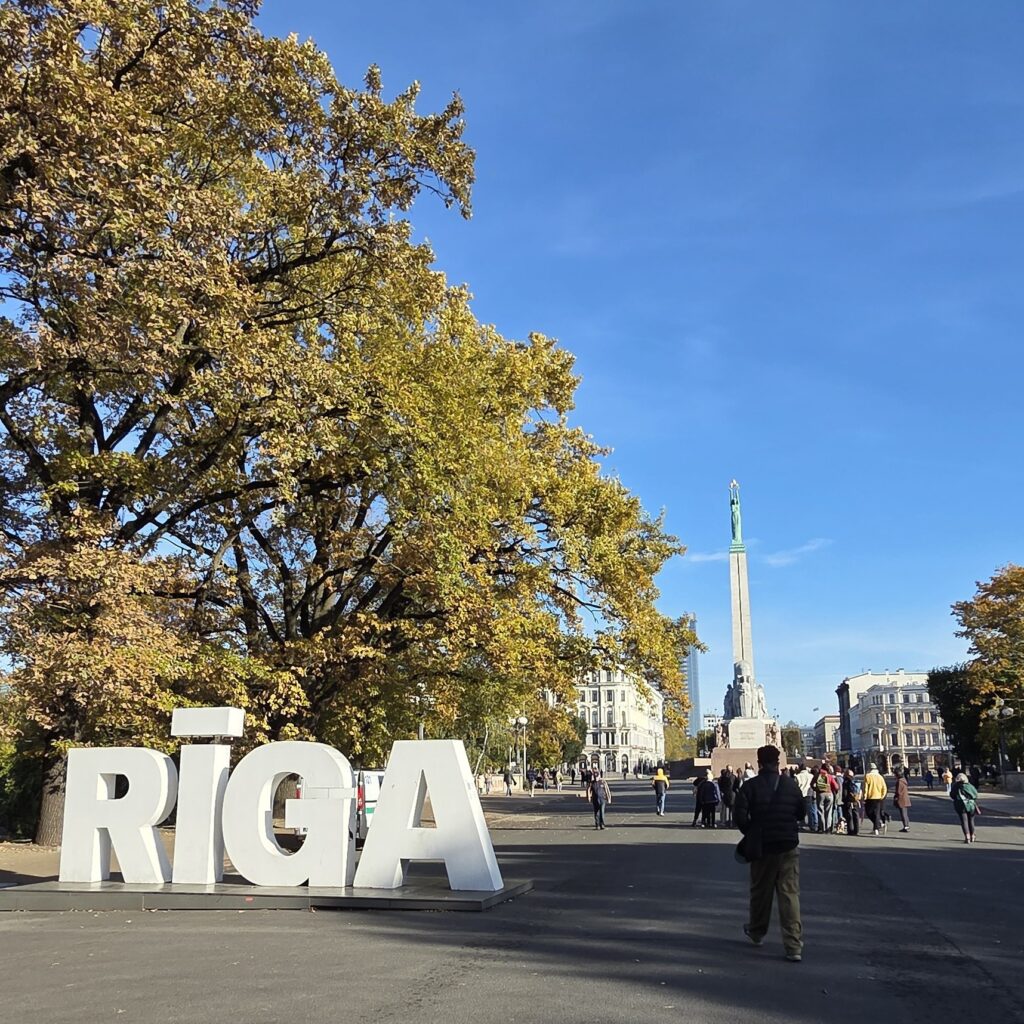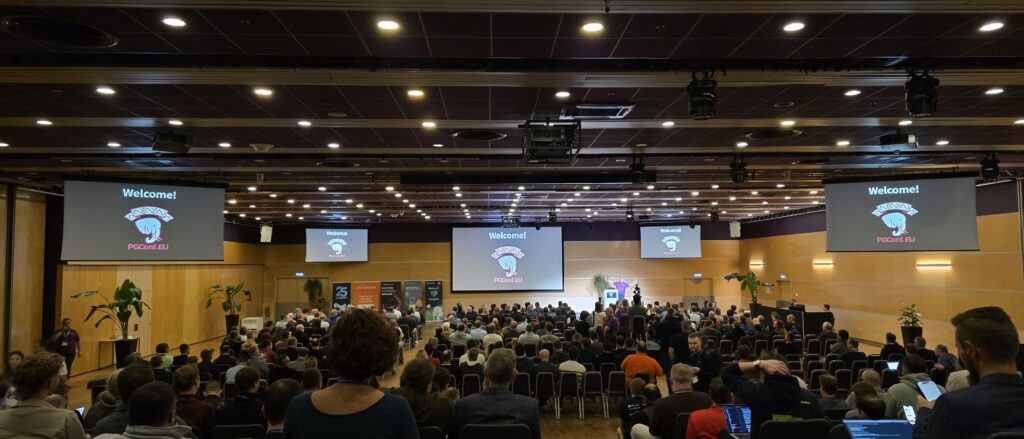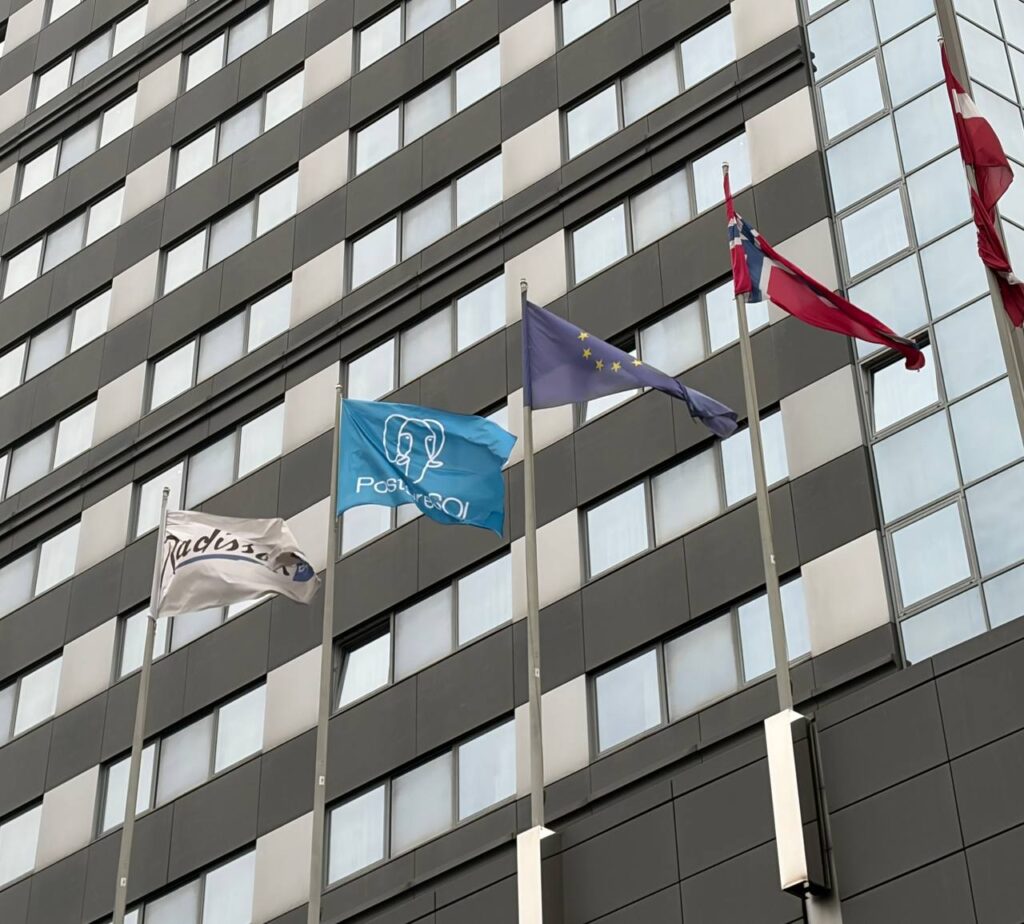
I was fortunate to be able to attend at the pgconf.eu 2025.
This year event was happening in RIGA and joined together once again key members of the community, contributors, committers, sponsors and users from across the world.
I would summarize this year event with those three main topics : AI/LLM – PG18- Monitoring.
AI/LLMs
Compared to last year the formula changed a bit regarding the Community events day of Tuesday where for the first time different “Summits” where organized. If you want full details on the event and the schedule as well as the presentation slides of each talk you may find it here : Schedule — PostgreSQL Conference Europe 2025
I had the chance to be chosen as a speaker for the AI Summit. It was quite interesting for me. In total there was 13 short talks (10min) on various topics related to PostgreSQL and AI/LLMs it was dense with a lot of interesting ideas of implementations – you can find the details and slides here PGConf.EU 2025 PostgreSQL AI Summit – PostgreSQL wiki. AI/LLMs are the hot topic of the moment and naturally it came up often during this event, in the talks and in the discussions. You can find the pdf of my presentation here. I explained a business case implementation of a BI self-service agentic RAG to find relevant fields for a target KPI and data marts creation as output. Since the talks were short, it allowed to have a debate at the end between the audience and the speakers. The discussion nicely moderated by organizers was interesting because it exposed the same strong thoughts people have in general about AI/LLMs. A blend of distrust and not fully understanding of what it is about or how it could help organizations. Which, in itself, shows that the PostgreSQL community has the same difficulties at explaining technical challenges versus organizational/human challenges. My view here is that we don’t have technical challenges, they are almost un-relevant to most arguments but rather human relation and understanding of what values a DBA for example, brings to the organization. To me installing and configuring PostgreSQL has no benefits in terms of personal growth so automating it is quite natural and adding AI/LLMs on top is “nice to have” but not fundamentally different than an Ansible playbook. But for the junior DBA this an additional abstraction that can be dangerous because it provides tools that users can’t grasp the full extent of their consequences. This outlines that the main issue of integrating AI/LLMs workflows is more a governance/ C-management issue than a technical one and it can’t be the last excuse for adding to the technological debt.
Jay Miller from Aiven explained how you can fail at exposing PII from LLMs and MCPs. This is rely a relevant topic knowing that more and more organization are facing issues like shadow IT. He also was quite the show host and was funny to hear. I recommend strongly watching the recording when it will be released.
PG18

This year was just after the PostgreSQL 18 version release which is one the version that brought major improvements and is initiating changes for future release to come. I was quite enthusiast to listen to Melanie Plagemen on how she worked on the improvements on freezing in this release. I have to say, usually when I am going at an advanced internal talk, I am more confused after than before. But here, Melanie did an amazing job at talking about a technical complex topic without loosing the audience.
Gülçin Yıldırım Jelínek, on her side explained what’s new in PG18 about constraints like NOT ENFORCED and NOT NULL and how to use them. The COO of Cybertec Raj Verma, during a sponsor talk, explained why compliance matters and how to minimize the risks and how PostgreSQL is helping us to be PCI DSS, GDPR, nLPD or HIPAA compliant.
Another interesting talk I was happy to attend was from Floor Drees and Gabriele Bartolini. they explain how they went on joining the CloudNativePG project to the CNCF.
Monitoring
This leads me to another important topic, I wasn’t looking for it but became a bit of a main subject for my over the years as a DBA that was interested in performance tuning. Monitoring on PostgreSQL was introduced by several talks like Luigi Nardi and his idea of workload fingerprint with the DBtune tool they have. Additionally, Lukas Fittl presented pg_stat_plans, an extension which aims at tracking execution plans over time. This is definitely something I am going to try and will push for implementation in the core extensions if not the core code itself.
The reason for that is obvious for me, PostgreSQL is becoming more and more central to enterprise organizations and appart from subject like TDE, monitoring is going to become a key aspect of automation, CloudNativePG and AI/LLM workflows. Having PostgreSQL being able to be monitored better and easier at the core will allow leveraging at all this levels. Cloud companies release that already hence there involvement in similar projects.
In the end, this year was once again the occasion for me to think about many relevant topics and exchange with PostgreSQL hackers as well as users from around the world. I came back home with the head full of ideas to investigate.
Additionally after the conference the videos of the each talks will be uploaded to the pgconf Europe Youtube channel : PostgreSQL Europe, but you can already check previous amazing talks and this year pgday Paris.
So once again the PostgreSQL flag was floating up high !

![Thumbnail [60x60]](https://www.dbi-services.com/blog/wp-content/uploads/2025/03/OBA_web-scaled.jpg)
![Thumbnail [90x90]](https://www.dbi-services.com/blog/wp-content/uploads/2022/08/FRJ_web-min-scaled.jpg)